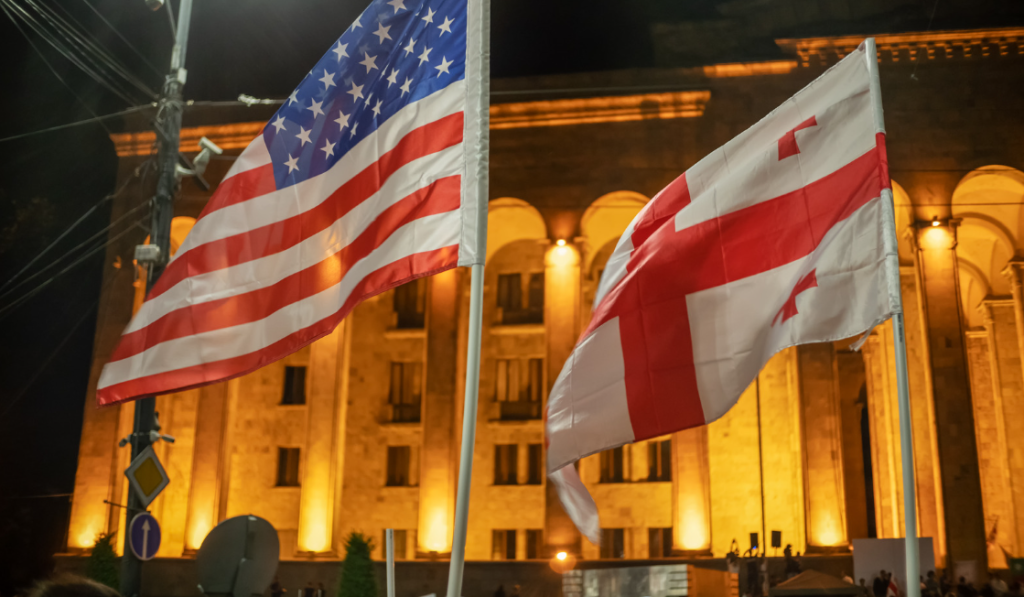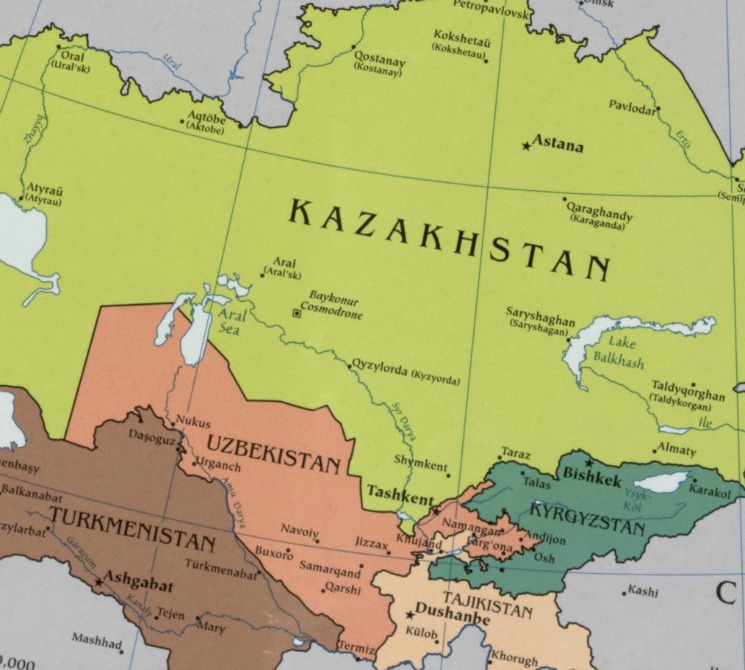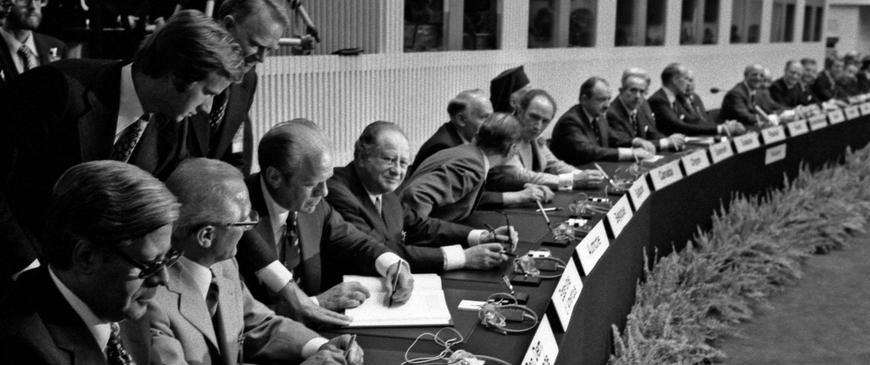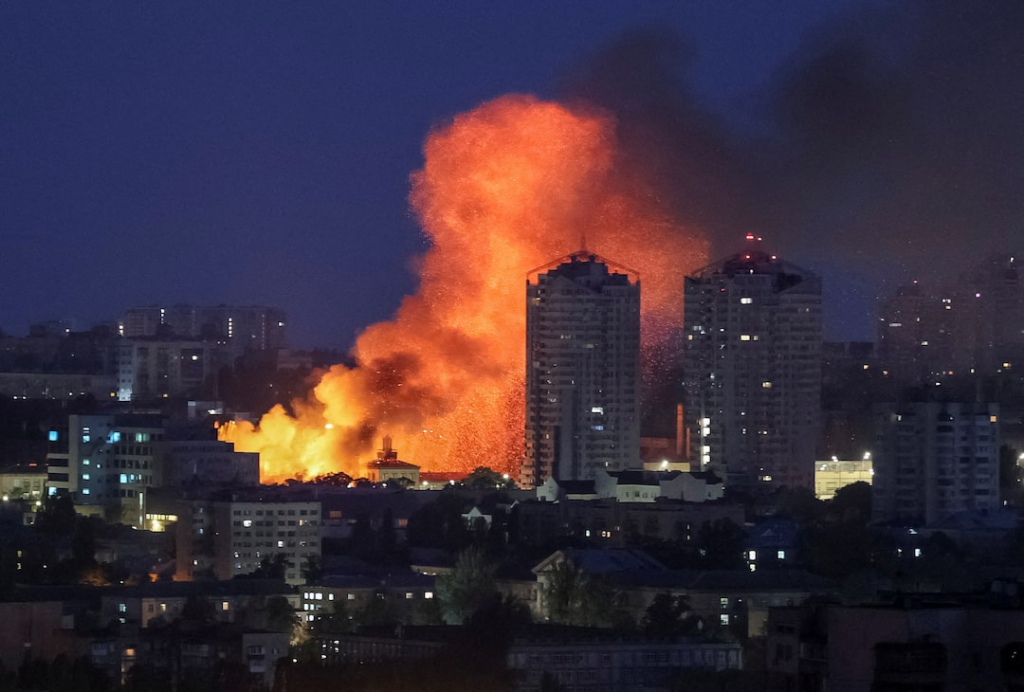In 1990, OSCE participating States pledged to hold free and fair elections and to invite foreign observers to observe its elections. Elections observation has since been recognized as one of the most transparent and methodical ways to encourage States’ commitment to democratic standards and has become a core element of the OSCE’s efforts to promote human rights, democracy, and the rule of law. 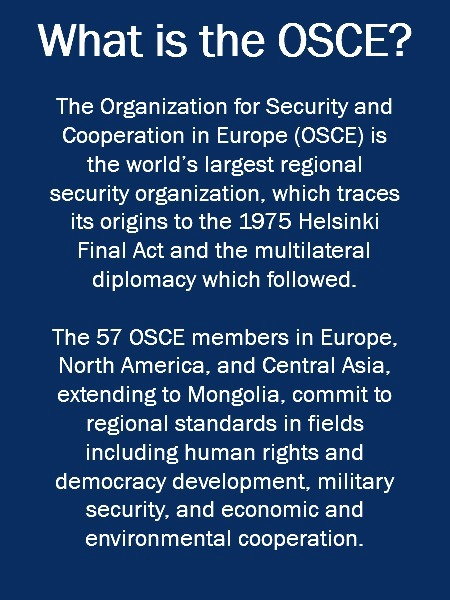
In 2020 alone, the OSCE has been invited to observe elections in nearly 20 OSCE participating States (Azerbaijan, Croatia, Georgia, Iceland, Ireland, Kyrgyzstan, Lithuania, Moldova, Monogolia, Montenegro, North Macedonia, Poland, Serbia, Slovakia, Tajikistan, Ukraine, and the United States).*
History of OSCE Election Observation
All OSCE participating States have committed to holding democratic elections that meet the same basic standards: universal access, equality, fairness, freedom, transparency, accountability, and privacy in voter submission. Because violations of these commitments can endanger stability in the OSCE region, as well as within an individual country, OSCE nations also agreed to open their elections to observers from other participating countries. To encourage compliance and confidence in the results of the observation missions, countries agreed to observe elections together under the OSCE umbrella.
Since the 1990s, OSCE election observers have been present at more than 300 elections throughout the OSCE region. While some OSCE countries benefit from foreign observation more than others – especially those that formerly had one-party communist systems and little experience with democracy – the OSCE also observes elections in more established and stable democracies, such as the United States, Canada, Germany, and the United Kingdom. Even these countries can benefit from consideration of the objective conclusions of those with an outside, comparative perspective. Perhaps more important, observation across the OSCE region removes any sense of stigmatization associated with the repeated hosting of election observation missions as well as any argument against hosting by those political leaders in some countries who continue to resist holding even reasonably free and fair elections.
As one of the original 35 members of the OSCE, the United States has participated actively in OSCE election observation missions, both by providing observers for foreign elections as well as by inviting the OSCE to observe every general and midterm election since 2002.
Election Observation Methodology
ODIHR’s election monitoring methodology takes account of the situation before, during, and after an election. All aspects of the electoral process are considered, to include a review of the legal framework; the performance of elections officials; the conduct of campaigns; the media environment and equitable media access; the complaints and appeals process; voting, counting, and tabulation; and the announcement of results. Recently, ODIHR has further expanded its methodology to explore the participation of women and national minorities.
Election Observers
OSCE election observation missions often are undertaken jointly by the OSCE Office of Democratic Institutions and Human Rights (ODIHR) and the OSCE Parliamentary Assembly (PA). A typical election observation mission comprises around 12 core team members, as well as several dozen long-term observers and several hundred short-term observers.
The missions, which combine strong technical expertise and sound political judgement, include ODIHR officials, professional analysts, parliamentarians, and others on loan from OSCE member countries. To ensure that no single country’s point of view is overrepresented, the OSCE limits the number of observers from any one country.
No matter where they are from, observers commit to an election observation code of conduct, which limits their role to observing and reporting. Observers have no authority to instruct, assist, or interfere in the voting, counting, tabulation, or other aspects of the electoral process.
Election Observation, Reporting, and Recommendations
Ahead of the elections, observers receive briefings from the host government, political parties, civil society, and media representatives. Long-term observers also follow pre-election activities including candidate and voter registration, political campaigns, and media coverage.
On Election Day, two-person teams of short-term observers fan out across the country to observe the conduct of the election, including opening of polling stations; checking whether ballot boxes are empty and properly sealed; the counting of ballots; the handling of spoiled or unused ballots; and the transmission of polling station results. Observers monitor how voters are processed, the accuracy of voter registries, and whether voters are able to vote in secret and in an environment that is free from intimidation. After the elections, long-term observers note how electoral complaints and appeals are handled.
The OSCE election observation mission publishes preliminary findings immediately after the elections, with a final comprehensive report issued a few weeks later. The final report includes in-depth analysis of the election’s political context and legislative framework; election administration; voter and candidate registration; the election campaign; the media; participation of women and national minorities; and the voting, counting, and tabulation processes.
Impact
The OSCE methodology represents the global standard for quality election observation. By analyzing election-related laws and systems, as well as the effectiveness of their implementation, election observation missions help document whether elections in OSCE countries are free and fair for voters and candidates alike. Its expertise has been shared with other regional organizations, and the OSCE has contributed to observation efforts outside the OSCE region.
The Helsinki Commission Contribution
The U.S. Helsinki Commission was the first to propose concrete commitments regarding free and fair elections more than a year before they were adopted by the OSCE in June 1990. By that time, Commissioners and staff had already observed the conduct of the first multi-party elections in seven East and Central European countries transitioning from one-party communist states to functioning democracies.
As the OSCE developed its institutional capacities in the mid-1990s, the Commission joined the efforts of an increasing number of observer teams from across the OSCE region, which evolved into the well-planned, professional election observation missions of today.
Commissioners and staff have observed well over 100 elections since 1990. More broadly speaking, the United States support OSCE observation efforts, to include deployment of civilian, parliamentary, and diplomatic observers abroad, but also supporting OSCE’s observation of domestic elections, with a focus on countries where resistance to democratic change remains the strongest.
Learn More
- Elections: OSCE Office of Democratic Institutions and Human Rights
- Election Observation: OSCE Parliamentary Assembly




